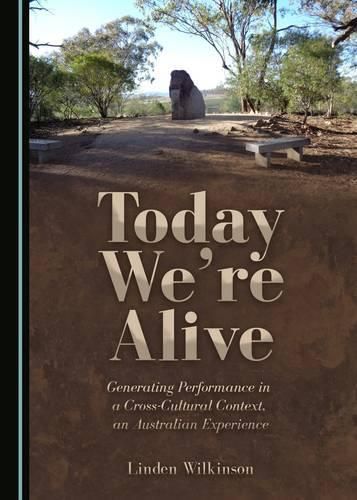Readings Newsletter
Become a Readings Member to make your shopping experience even easier.
Sign in or sign up for free!
You’re not far away from qualifying for FREE standard shipping within Australia
You’ve qualified for FREE standard shipping within Australia
The cart is loading…






By 1888, after 100 years of colonisation, it is estimated that 95% of the Australian Aboriginal and Torres Strait islander population had ‘disappeared’. Along with starvation, disease, dispossession and grief, a further contributing factor to this decline was murder. Massacres occurred sequentially as the line of first contact forged its way across a country that had been occupied, cared for, and loved for over 50,000 years by about 250 separate Aboriginal nations. The concomitant brutality subsumed in the colonial narrative of zeal, purpose and prosperity meant that massacres were shrouded in silence for generations; denied, ignored and under-reported. However one particular massacre remains an anomaly. The massacre at Myall Creek occurred on June 10th, 1838, in the fading light of a wintry Sunday afternoon. It was perpetrated by eleven convicts under the leadership of one free-born squatter’s son; they had hunted ‘blacks’ together before. They tethered twenty-eight old men, women and children, Weraerai people of the Kamilaroi nation, led them away from their camp, and then systematically butchered them all. These details are available, because this particular massacre went to trial. One hundred and sixty-two years later, a group of Aboriginal and non-Aboriginal people formed a committee and built a memorial to commemorate the only massacre in Australia’s colonial history, where some but not all of the perpetrators were punished.Today We’re Alive: Generating Performance in a Cross-Cultural Context, an Australian Experience is a doctoral thesis, which examines the multiple narratives embedded in colonial and recent history. At the heart of this research is a verbatim play: the interweaving of Aboriginal and non-Aboriginal testimonies about Myall Creek and the memorial, testimonies sourced from descendants of massacre survivors, descendants of massacre perpetrators and involved others. As a thesis it explores the possibilities offered by performance ethnography as a decolonizing methodology; as a play the research seeks to find a reconciliation narrative, a story that through performance addresses the past and recognises the possibilities of a shared future.
$9.00 standard shipping within Australia
FREE standard shipping within Australia for orders over $100.00
Express & International shipping calculated at checkout
By 1888, after 100 years of colonisation, it is estimated that 95% of the Australian Aboriginal and Torres Strait islander population had ‘disappeared’. Along with starvation, disease, dispossession and grief, a further contributing factor to this decline was murder. Massacres occurred sequentially as the line of first contact forged its way across a country that had been occupied, cared for, and loved for over 50,000 years by about 250 separate Aboriginal nations. The concomitant brutality subsumed in the colonial narrative of zeal, purpose and prosperity meant that massacres were shrouded in silence for generations; denied, ignored and under-reported. However one particular massacre remains an anomaly. The massacre at Myall Creek occurred on June 10th, 1838, in the fading light of a wintry Sunday afternoon. It was perpetrated by eleven convicts under the leadership of one free-born squatter’s son; they had hunted ‘blacks’ together before. They tethered twenty-eight old men, women and children, Weraerai people of the Kamilaroi nation, led them away from their camp, and then systematically butchered them all. These details are available, because this particular massacre went to trial. One hundred and sixty-two years later, a group of Aboriginal and non-Aboriginal people formed a committee and built a memorial to commemorate the only massacre in Australia’s colonial history, where some but not all of the perpetrators were punished.Today We’re Alive: Generating Performance in a Cross-Cultural Context, an Australian Experience is a doctoral thesis, which examines the multiple narratives embedded in colonial and recent history. At the heart of this research is a verbatim play: the interweaving of Aboriginal and non-Aboriginal testimonies about Myall Creek and the memorial, testimonies sourced from descendants of massacre survivors, descendants of massacre perpetrators and involved others. As a thesis it explores the possibilities offered by performance ethnography as a decolonizing methodology; as a play the research seeks to find a reconciliation narrative, a story that through performance addresses the past and recognises the possibilities of a shared future.